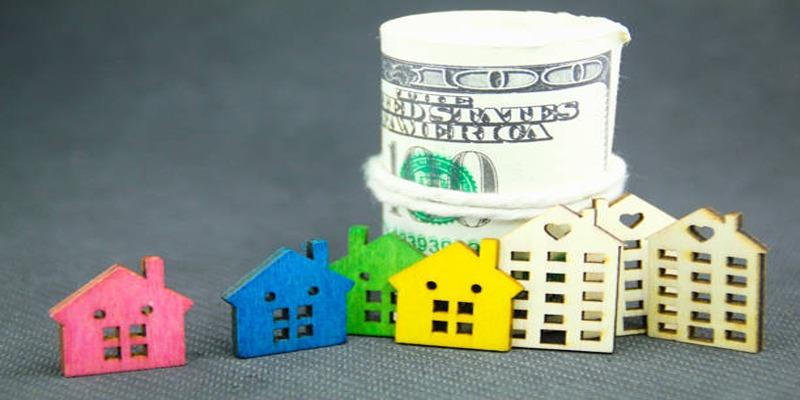Understanding Good vs Bad Liens on Your Credit Score
May 06, 2024 By Susan Kelly
Navigating through the financial landscape can often feel like a daunting endeavor, especially when it comes to understanding how certain elements affect your credit score. One of the less understood aspects is the impact of liens on your credit worthiness. Liens, which are legal claims against assets to secure debts, can be classified as either good or bad, depending on their context and your financial management. This distinction is crucial, as it can significantly influence your credit score and, consequently, your ability to secure loans, mortgage rates, and even employment opportunities in some cases. In this guide, we'll demystify the differences between good and bad liens, exploring how each can impact your financial health and what steps you can take to mitigate any negative effects on your credit score.
The Impact of Liens on Credit
Liens are typically reported to credit bureaus and can appear on your credit report, influencing your score depending on their nature. Good liens, such as those for secured loans where you're making timely payments, can actually bolster your credit score by demonstrating responsible credit management. On the other hand, bad liens, such as those resulting from unpaid taxes or judgments against you, can significantly harm your credit score. These negative marks signal to lenders that you pose a higher risk, potentially leading to higher interest rates or denial of credit. It's important to address any liens promptly, negotiating payment plans or settlements where possible, to minimize their impact on your financial standing.
Types of Liens Explained
Liens fall into various categories, each with specific implications for your financial health. Understanding these can help you manage or avoid their impact on your credit score.
Voluntary Liens
Voluntary liens are those you agree to, typically as a condition of securing a loan. An example is a mortgage lien on your home or a car loan lien on your vehicle. These liens are considered good when you make regular payments, as they demonstrate to creditors that you are a responsible borrower. By consistently meeting your payment obligations, you can actually improve your credit score, showcasing your reliability to future lenders.
Involuntary Liens
Involuntary liens are placed without your agreement, often due to unpaid debts or legal judgments. Examples include tax liens for overdue taxes and judgment liens from losing a lawsuit. Involuntary liens are seen as bad for your credit score. They signal financial instability or trouble managing your debts, which can deter lenders. It's pivotal to address these liens immediately, possibly by disputing them if incorrect, or by settling the outstanding debt, to mitigate their negative effects.
Mechanic's Liens
Mechanic's liens can be considered both voluntary and involuntary. They are typically placed by contractors or suppliers on a property until they're paid for services rendered. While these liens don't necessarily indicate financial irresponsibility, they can deter potential buyers or lenders because they suggest a dispute over payment. Paying off the debt and having the lien released promptly is the best course of action to prevent a negative impact on your credit rating.
How to Identify Harmful Liens?
Identifying harmful liens early can protect your credit score from significant damage. Look for these red flags:
- Unfamiliar Liens on Your Credit Report: Regularly review your credit reports for any liens you don't recognize. Incorrect or fraudulent liens can negatively affect your score. Act swiftly to dispute inaccuracies with the credit bureaus.
- Notices from Creditors or the Government: Pay attention to any communication regarding unpaid debts or tax obligations. These notices can precede an involuntary lien, signaling a need to address financial issues promptly to avoid a lien being placed.
- Legal Documents or Court Judgments: Official documents or judgments against you in court can result in involuntary liens. Stay informed about any legal actions you are involved in and seek to resolve disputes quickly to prevent liens from being imposed.
Strategies for Resolving Bad Liens
 Resolving bad liens is crucial for restoring your financial health. Here are effective strategies to tackle them:
Resolving bad liens is crucial for restoring your financial health. Here are effective strategies to tackle them:
Pay Off the Debt
Settling the outstanding debt is the most straightforward way to resolve a bad lien. Once paid, the creditor is required to remove the lien from your property. This action will also signal to credit bureaus that the debt has been satisfied, gradually improving your credit score. Its essential to obtain a lien release document from the creditor as proof that the debt has been cleared.
Negotiate a Settlement
If paying the full amount immediately is not feasible, consider negotiating a settlement. Creditors are sometimes willing to accept a lesser amount than what is owed to settle the debt. This can still lead to the removal of the lien, though its important to negotiate the terms carefully and ensure the creditor agrees in writing to remove the lien upon payment.
Dispute Incorrect Liens
Not all liens are valid. If you believe a lien has been wrongfully placed against you, challenge it. Gather all relevant documents and evidence to support your case and file a dispute with the credit reporting agencies. If the lien is indeed incorrect, it will be removed, and your credit score may be adjusted.
Seek Legal Advice
In complex situations where negotiation or payment isnt an option, or if the lien is a result of a legal judgment, consulting with a legal expert can provide clarity and options. Lawyers who specialize in debt resolution can offer strategies to manage or remove liens, including filing for bankruptcy in extreme cases, which can discharge certain types of liens.
Protecting Your Credit Score from Liens
The best strategy to protect your credit score from liens is to avoid them altogether by managing your finances responsibly. This includes paying all bills and taxes on time, keeping track of your debts, and resolving any financial disputes promptly. Regularly monitoring your credit report for any inaccuracies can also help you catch and address potential liens before they cause significant damage to your credit score.
Final Words!
Managing liens effectively is a critical component of safeguarding your financial stability and maintaining a healthy credit score. Whether dealing with voluntary, involuntary, or mechanic's liens, understanding their potential impact and taking proactive steps for resolution can prevent long-term damage to your credit. Regular review of your credit report, prompt payment of debts, and engaging in negotiations or disputes when necessary are essential practices. By staying informed and acting responsibly, you can navigate the challenges of liens confidently and keep your financial future secure. Remember, the path to a strong credit score is paved with diligent financial management and awareness.

Mortgages
All You Need to Know About Bank of America Preferred Rewards
Explore the benefits of Bank of America Preferred Rewards. Learn about its pros and cons, along with ways to enhance your banking experience.
Learn More
Investment
Service Dogs and Insurance Policies: A Comprehensive Guide
Curious about insurance coverage for service dogs? Learn all about it in this informative article.
Learn More
Investment
Liability Insurance Explained: How Much Do You Really Need?
Discover the importance of liability insurance for drivers and how to determine the right coverage amount to protect yourself.
Learn More
Investment
An Eccentric Guide: How Snapchat Makes Money
Snapchat is an app that allows users to send other private messages and share photos and videos with their friends and family. On this platform, users can send and receive messages, photographs, and videos that vanish after being viewed by the recipient.
Learn More
Investment
Top Rated Car Insurance Companies In Minnesota
If you are looking for a perfect company to repair your car, compare car insurance in Minnesota and select the one that meets your requirements.
Learn More
Banking
Understanding Good vs Bad Liens on Your Credit Score
Discover strategies to manage and remove liens to protect your credit score. Learn to negotiate, pay off debts, and dispute inaccuracies effectively.
Learn More